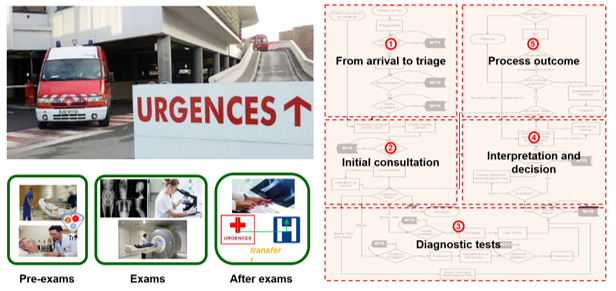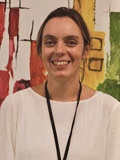MORE ON INDUSTRIAL ENGINEERING
Description
Industrial engineering is a well-established discipline worldwide. Despite the variety of names of research departments, curricula and doctoral schools in international universities, it often amounts to “Industrial, System Engineering and Management”. The objects of study of our scientific discipline are (a) Product-Service Systems and (b) as-is and to-be production or activity systems.
These systems purposely exist to deliver adapted and optimal performances and create values to users through functions and services. These systems are designed, manufactured and delivered, exploited, maintained, updated and recycled.
These systems are described by their architecture, are made of components, are configurable and demonstrate different properties like robustness, flexibility, agility, resilience, safety… Our scientific language is also made of processes, resources, performances, costs, risks, business models, decisions, needs, preferences, competencies, projects, tasks, flows, stakeholders, value chains, supply chains, innovation, strategy, investments, economic and societal impacts…
The Industrial Engineering (IE) Department (Laboratoire Genie Industriel, LGI) studies production, activity or socio-technical systems along their life cycles. These systems are engineered by humans and must be observed, diagnosed, specified, designed, improved, manufactured, deployed, exploited, regulated, maintained and recycled.
HEAD OF LGI Anne Barros
CONTACT mailto:anne.barros@centralesupelec.fr |
These systems (see Figure 1) are industrial systems (production systems, value chains, ecoparks), complex products (airplanes, cars…), complex factories, transportation systems, health systems, energy networks, service systems and construction systems.
Figure 1: LGI studies production, activity or social-technical systems along their life cycles
Figure 2: Life Cycle Assessment & Eco-Design of complex industrial systems

Key principles of our research are: multidisciplinarity, life-cycle thinking (see Figure 2), societal and economical issues, model-based engineering approaches.
- the presence of sophisticated technical components but also of human agents (organizations, policy makers, operators),
- a large number of individual components that interact,
- heterogeneity of these components, each with specific individual behavior,
- systems that must often be analyzed at different physical, spatial and temporal scales and from different points of view (technical performance, cost, environmental impacts, material flows, skills...), see for instance Figure 3,
- a system feedback on its components and the emergence of macroscopic properties.
Figure 3: Simulation of a kitting automated cell (robot-operator collaboration upstream of an assembly line)

The control of such systems presents many challenges and issues from both a technical and scientific point of view as well as practical and application perspectives like financial profitability, efficiency, continuity and reliability of service, security, resilience. The integration of technical systems is already challenging regarding, for example, aerospace, automotive or energy systems, but it is even more complex when it comes to inter-network systems («System of Systems» paradigm) such as health systems, human mobility infrastructure, distribution of products and services, transport and regulation of energy, gas, water, and other socio-technical systems including human or various agents such as organizations with different and even contradictory strategies, goals and preferences. Our scientific approach consists in adequately modeling for analyzing and simulating (see Figure 4) in order to better understand the system behavior through virtual experiments on models and, ultimately, finding optimal solutions for the design, deployment and monitoring. Often many life cycle phases of these systems must be modeled and analyzed: collection of needs and requirements specification, development (architectural design, dimensioning, validation, manufacture and market launch or startup), system management (its regulation, its maintenance, its failure modes, its upgrade, its dismantling and end of life).
Figure 4: Optimization of patient flows in emergency services

Collaboration
Industrial Partners
- Automotive industry/transport: Renault, PSA, Valéo, • Akka Technologies, RATP, SNCF, Alstom
- Aeronautics : Thalès, Safran, Airbus, AdP
- Energy : EDF, Total, Engie
- Information science: IBM, Place des leads, Interact-IV
- Control: Schneider Electric, Siemens
- Services: IWIPS, Leynaud & Associés, Etablissement • Français du Sang, Mairie de Paris, Le Basic, CapitalDon
- Goods: LVMH, Sanofi, Carrefour, L’Oréal
- Construction: Bouygues Construction
- Research institutes: CEA, IRT SystemX, VEDECOM, • Agence Régionale de Santé
- IT: Orange, Nokia Bell Labs
Academic Partners
More than 50 collaborations abroad: Allemagne (Université de Magdeburg, TU Munich, Université de Nuremberg Erlangen), Angleterre (University of Liverpool, University of Bath, The Open University), Autriche (University of Vienna, Australie (University of Queensland, Université de Melbourne), Belgique (Université de Louvain, Université de Mons), Brésil (UFRJ, PUC, Université de Lavras), Canada (Mc Gill University, ETS), Chine (Beihang University, Ecole Centrale Beijing, Wuhan University of Technology, University of Honk Kong), Danemark (DTU), Espagne (Université de Valence), Finlande (University of Helsinki, Aalto University), Italie (Université de Catane, Politecnico di Milano, Politecnico di Turino), Japon (Chiba University, RITE-Kyoto), Liban (Université de Beyrouth), Luxembourg (Université de Luxembourg), Maroc (Ecole Centrale de Casablanca), Norvège (University of Stavanger), Pays-Bas (VU University Amsterdam), Pologne (Poznan University of Technology), Portugal (University of Coimbra), Singapour (SUTD), Suisse (HEC Lausanne, ETHZ), Tunisie (ENIT, ENIM), Turquie (Koç University), USA (Northwestern University Chicago, MIT, Penn State University, Georgia Institute of Technology, Iowa State University, University of Minnesota, University of Illinois at Urbana-Champaign, Illinois University).
